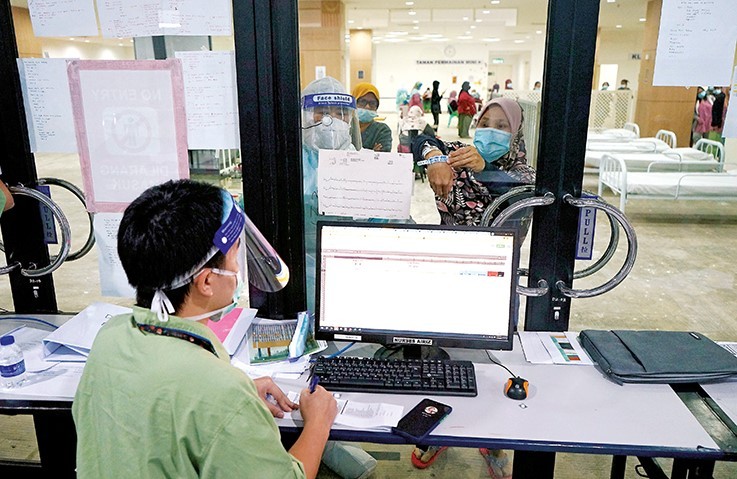
THE Malaysian healthcare system is better equipped in facing the possibility of new Covid-19 waves.
Malaysian Medical Association (MMA) president Dr Koh Kar Chai said the preparedness against new waves comes from the 2½ years’ experience and lessons learned from battling the pandemic.
“Even today, although all business sectors have reopened and we have entered endemicity, a number of standard operating procedures (SOPs) are still being observed, including wearing facemasks indoors and in crowded places.
“Despite having returned to normalcy, the public should take heed to the Health Ministry’s (MoH) stern reminder that Covid-19 is still among us,” he told The Malaysian Reserve (TMR) recently.
He said Covid-19 had, at the height of the pandemic, brought the healthcare system to its knees, therefore Malaysia should by now know better than to wait for a new wave or another pandemic before fortifying the healthcare system.
“The time for healthcare reforms is now,” he added.
Referring to the viral memo on doctor shortages at the Kuala Lumpur Hospital, Dr Koh believed that the Covid-19 situation in Malaysia would worsen if doctors from Covid-19 wards and intensive care units (ICUs) are transferred elsewhere.
“Although the Covid-19 patient count is not as high now compared to around this time last year, the shortages result in the remaining doctors working more hours and without sufficient rest.
“Some doctors are on call almost every other day. Over time, the burnout will affect the level of care being delivered,” he said to TMR.
According to Dr Koh, doctor shortages in Malaysia were caused by a number of contract doctors resigning by the time the MoH came up with a solution to the contract system issue, maldistribution of doctors and lack of positions and promotions.
“Over 1,000 specialists had resigned from government service between 2011 and 2017 for various reasons and recently, many medical officers were sent to East Malaysia without immediate replacements.
“These events have contributed to the shortages we see now, most of which are in states outside of Klang Valley,” he said.
Meanwhile, the maldistribution of doctors has resulted in a doctor-to-patient ratio that differs from state to state.
For example, the doctor-to-patient ratio is much lower in East Malaysia compared to West Malaysia.
“In some states, up to only two sub-specialists are serving the entire state.
“If these shortages are not addressed now, many of our doctors in the public healthcare system will continue to suffer from burnout or even leave the service,” Dr Koh warned, adding that this could also happen from lack of promotions.
“If nothing is done, in 10 years, we may not have enough specialists to train junior doctors,” he said.
On the other hand, public health physician and epidemiologist Datuk Dr Zainal Ariffin Omar opined that the trend of Covid-19 infections in Malaysia will be under control despite the emergence of new variants, due to MoH’s constant monitoring.
Furthermore, he believed the issue of doctor shortage will not have a big impact on the healthcare system as the current Covid-19 admissions are not as severe.
“Our healthcare system can still manage it for the time being because Malaysians have already adapted to the situation.
“People might have grown complacent but due to the increasing cases lately, they will be cautious and abide by the SOPs again,” he said to TMR.
In a recent press conference, Health Minister Khairy Jamaluddin warned that the highly contagious BA.5 Omicron variant has arrived in Malaysia and that the MoH is expecting a rise in cases.
Malaysia recorded five cases of BA.5 variant, six cases of BA.2.12.1 and two cases of BA.5.2 between May and June this year.
As of July 18, Malaysia recorded 3,936 new cases, bringing the total to 4,585,143 of which 42,511 are active. Of the total, 23 are in the ICU unventilated while 38 are ventilated.
Source: https://themalaysianreserve.com/2022/07/18/malaysia-prepared-against-new-covid-wave-but-more-manpower-needed/

